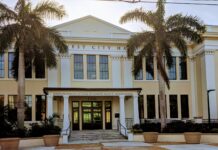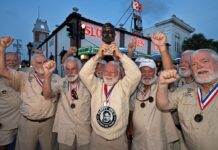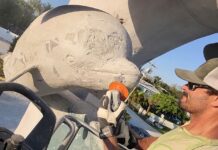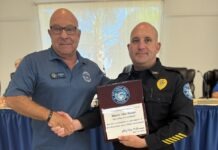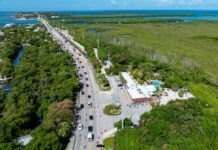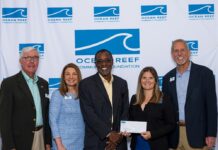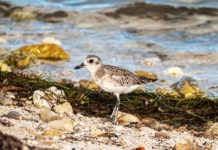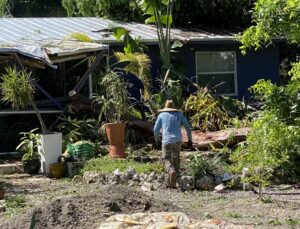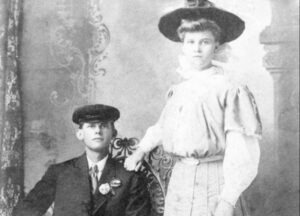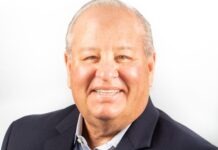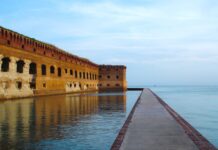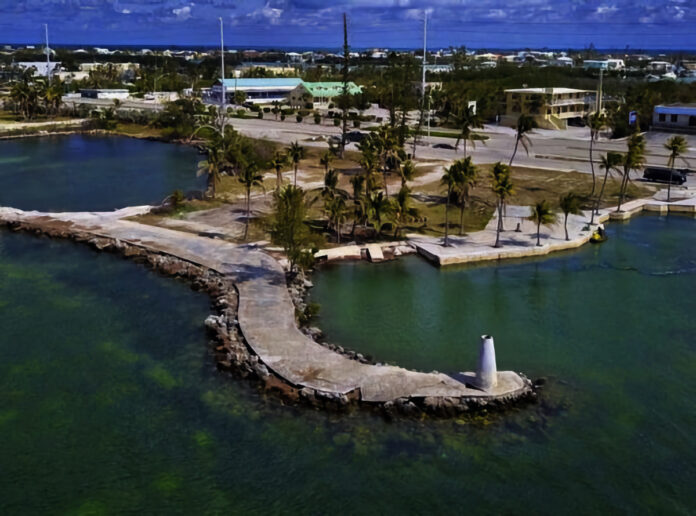
A new park, or another boat ramp?
The Marathon City Council left its Jan. 22 workshop with more questions than answers for redevelopment of the Quay property.
The workshop saw the council consider a second design for the area – previously headed for development as a community park with a kayak launch, boardwalk, picnic facilities, fishing areas, food trucks and restrooms – after three years of public workshops. Costs associated with the original design would total $1.175 million, city staff wrote in the evening’s agenda packet.
The second design, previously requested by Vice Mayor Lynn Landry and councilman Kenny Matlock and presented at the special call meeting, would add a double boat ramp on the property’s east end while modifying the existing ramp for use as a kayak launch and preserving scaled-down versions of amenities in the original plan. The new design incorporates a counterclockwise loop pattern for a line of waiting boat trailers around the outside edge of the park. Costs for this modified plan would total roughly $2.02 million, along with an extended timeline due to permitting and bids for the modified scope of work.
Moving the boat ramp from its existing location – on property given to the city by the Florida Department of Transportation in 2009 – to the Quay property, purchased by the city in 2018, has significant financial implications beyond the construction costs of the redeveloped area.
An $844,000 grant from the Florida Community Trust helped partially fund the purchase of the Quay property nearly six years ago, and would be paid to the city as reimbursement for the purchase upon submission of purchase documentation and an approved management plan for the property.
However, as the grant is funded by the state, Marathon must maintain equal access for all on property purchased and developed with FCT funds. The translation: Marathon can keep the grant funding only if it levies fees on all users, including locals, for the Quay location, or makes that specific ramp free to use for everyone.
City staff also raised concerns that returning the grant could have negative implications for Marathon in future FCT grant applications. City Manager George Garrett said Marathon currently has another application in for an FCT grant on a second property, and that returning the Quay grant money “probably does put that at risk.”
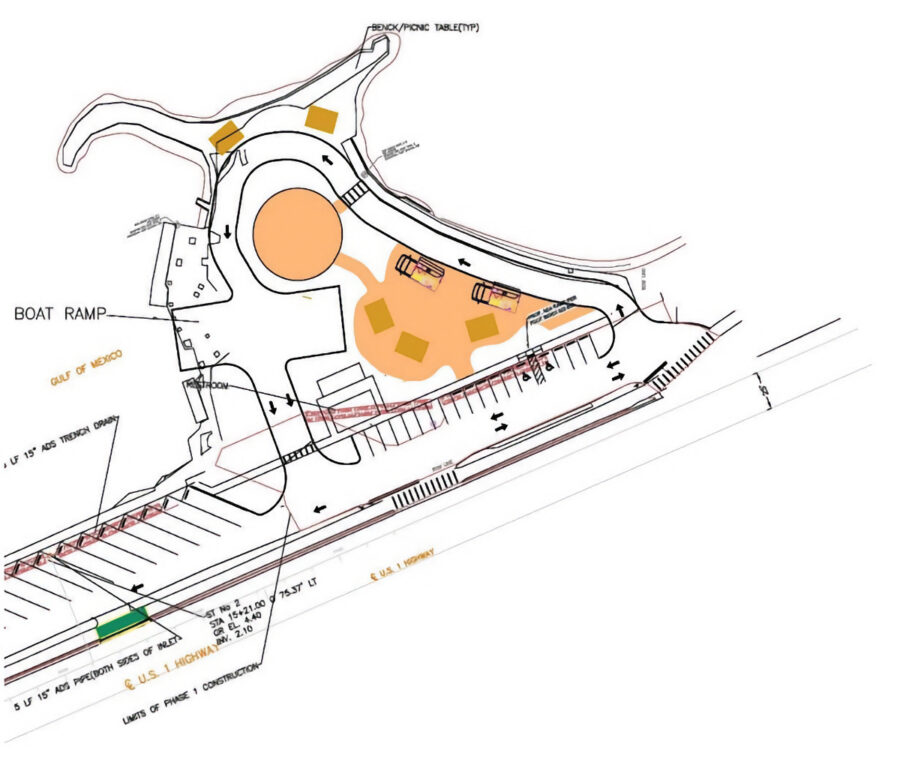
Addressing the council, Public Works Director Carlos Solis said the modified design would likely take more than two years to complete, while a press release called construction plans for the original design “60% complete.”
“We have a boat problem in this community,” said Landry, citing the city’s exponential increase in vacation rentals since 2014. “We have to be willing as a city to pivot off of something that we thought would have been a great idea at the time. … Some locals say this is a vacation rental problem, but it’s a problem for the entire city when people are stuck on U.S. 1 with boats and trailers.”
Landry said he was pleased with the new design, calling the incorporation of an extended launch waiting line along with original park features “a win-win.”
“For me to give up an $844,000 grant … to build a long-term revenue stream on that property, it’s a no-brainer for me,” he added.
Garrett floated the idea of lowering boat ramp charges across the board but including locals in the fees to generate “the same amount of revenue,” an idea Landry and Mayor Robyn Still immediately nixed.
Councilman Luis Gonzalez raised safety concerns with the circle of boat trailers moving around a park with children, saying “the two don’t mix.”
“For me … getting boats launched a little quicker doesn’t outweigh the risk of putting people’s lives in danger,” he said. “We’ve all witnessed that boat ramp – it’s a total disaster. And now we’re going to beautify it to increase the amount of traffic that goes there.”
Landry agreed with Gonzalez’s concern, saying high-risk periods could be avoided by closing the park on busy holiday weekends.
Matlock supported “totally separating” the park from the ramp by exploring a third design that would turn the existing boat launch area into a linear park.
Councilman Jeff Smith asked for the new site plan to be tweaked to address safety concerns, but added that in viewing council meeting minutes and recordings from the original purchase of the Quay property, “it was bought specifically to alleviate boat traffic on U.S. 1 as a safety issue. … When I watch that meeting, I don’t know that we’ve met the goal of alleviating the backup on U.S. 1 and providing adequate boat ramps.”
Former councilman John Bartus, who served at the time of the property’s acquisition, contested Smith’s statement, saying that the council’s intent in purchasing the property also included “green space for recreational use.”
“We need more boat ramps … 40 days out of the year,” he said, adding that he “didn’t see a dual use there.”
“You need to choose one of two options: either do not install boat ramps and keep the grant, or make it just a big boat ramp park,” he said.
Though the workshop session prohibited any formal action, council members said they would review both plans and additional considerations from the evening for a future vote.
